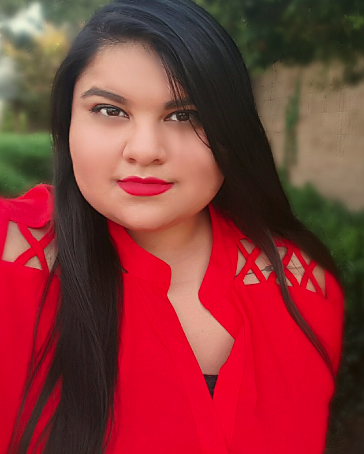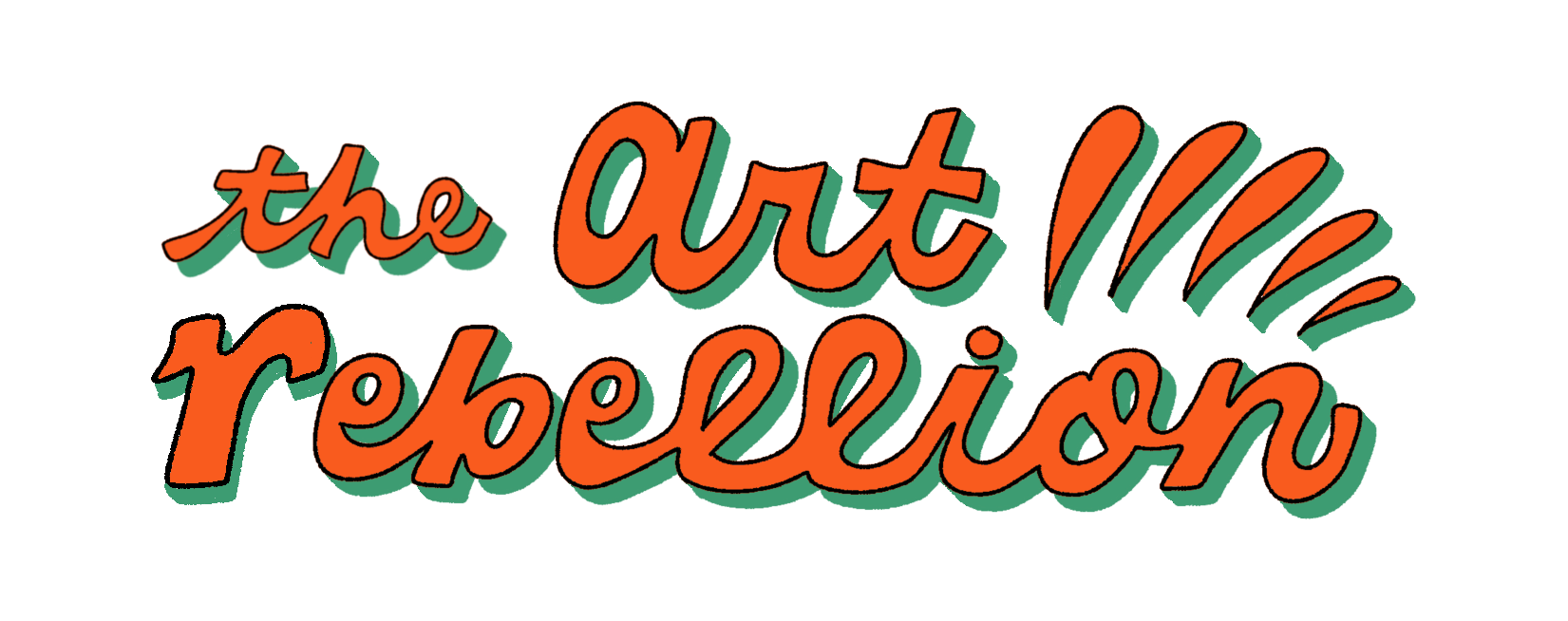February 2022: Creative Sovereignty in Theater
Interview with playwright and director Tara Moses
Interview with playwright and director Tara Moses

Creative Sovereignty in Theater
By Makeda Easter
Happy Saturday and welcome to the second edition of the art rebellion! Late last year, as I was researching art activism across the U.S., I had a phone call with Tara Moses a playwright and director committed to Native representation in theater. One of the first things Tara told me about her work was that the entirety of her artistry is devoted to decolonization, and that she uses “creative sovereignty” as a way to ensure she and other artists have full autonomy over the way they create.
I had to learn more and so this newsletter is dedicated to exploring the concept — how creative sovereignty works and how artists can implement it into their own practice.
Tara is a citizen of the Seminole Nation of Oklahoma with Mvskoke ancestry. She began doing theater around 8 years old and over the years has worked as an actor, stage manager, and designer. Now, she’s a director and award-winning playwright, co-artistic director of Red Eagle Soaring, a Native youth theater in Seattle, and co-founder of Groundwater Arts, a collective focused on the arts through a climate justice lens. Oh, and she’s currently pursuing an MFA at Brown/ Trinity Rep.

Tara Moses, photo by Teresa Siler
For Tara, the new play development process is "Colonialism 101”.
From her experience, it often looks something like this for Native playwrights and other playwrights of color:
A playwright makes new work. The work is produced by a mainstream theater. The theater brings in a dramaturg, who is most times not of the same background as the playwright. Their job is to “fix structural things in the play.” (Those “structural things” typically refer to the European style of storytelling, Tara adds). Then, the theater brings in a director and later an artistic director who have the power to make changes to the play “to fit what their view of good is.”
And in the process, the playwright is colonized, their ideas flattened and made palatable for white audiences.
As a way to empower artists of color and reduce the harm of white theater, Tara is guided by creative sovereignty, a term she coined around 2017. A combination of the word creative — how one expresses themselves through their art — and sovereignty — the inherent ability to govern one’s self with full autonomy, creative sovereignty means ensuring every artist has full autonomy and agency to self-create. As a playwright and director, Tara’s voice is centered at all times.
Tara emphasized that she didn’t invent the concept. “In the simplest, most non-simple, most complex way, every single Indigenous community across the globe have self-governed since time began,” she says. “It’s in our bones and it’s in our DNA. We know how to self-govern.”
Respecting a person’s creative sovereignty is one way to meaningfully engage with Native artists, she says.
But what does it look like in practice for Tara?
First, theaters need to respect her creative choices. Theater leadership does not have the power to alter her work. “I don’t get notes. If an artistic director wants to be engaged in the process, come to rehearsal, observe what’s going on — but all means please let’s have a conversation about notes, or better yet, let’s just have a conversation.”
Artistic directors can instead frame their ideas as suggestions — with no obligation for the director to comply. “Respecting when someone says no. Not pushing it, not questioning it, not giving it anyway. Not telling somebody else to tell it to them.... not sending them an e-mail late at night later,” she says.
“It makes no logical sense to me how someone who has not been within community building this story together can walk in without being there day to day and doing that work, and having vital context, and try to give me notes based on what they think is good. Also, their definition of good comes from a Euro-centric definition of theater that’s currently the standard, unfortunately, in the United States.”
A communal art form, theater involves a team of artists working together to tell a story. And so Tara extends creative sovereignty to everyone she works with, from actors to designers. Each artist has the ability to make choices and be creative in their own ways during the process of directing a play.
“The creative sovereignty with the director is within the world of the play that you’re building, and for the actors, within the world of their characters,” she says. “If an actor wants to make a certain choice that I may disagree with, if it doesn’t compromise the world of the play that we’re building together, by all means let them go.”
She gave an example from last August. She was directing a play called “Killer Whale and the Black Rush” by Dylan Thomas Elwood about climate change and colonialism. In the play, two characters, Summer Salmon and Fox are in a romantic relationship. Tara was adamant that it was not an authentic love relationship. But the actress playing Summer Salmon felt strongly that her love for Fox was genuine and that it wasn’t just a survival tactic.
“Even though I adamantly disagreed with it, I was like ‘alright this doesn’t disrupt the role of the play.’”
Instead of shutting down the actor’s idea, Tara was open. The relationship in the play “became a really beautiful demonstration of Natives in romantic relationships with non-Natives, specifically white people. Those deep, deep nuances … it enriched it and brought the play to a different level that I didn’t initially plan for.”
Theaters often resist working this way.
“Then the show goes up and audiences cannot explain why they love it so much. It’s like, ‘Well, this is what happens when you don’t colonize artistry.’ Audiences, they don’t have the language, but they intrinsically know. Even the white ones. They know what they’re watching is actually authentic and created within community. You can’t fake that.”
One of the most common questions she receives about creative sovereignty is what happens when someone’s autonomy oversteps and harms another person or community.
“My ability to exercise my creative sovereignty ends where the no’s of someone else’s begins. I can do whatever the fuck I want in my own little community, but the moment I go out my borders, start fucking up somebody else, we’re going to have problems,” she says, laughing.
Practicing creative sovereignty comes with responsibility. It means spending time with communities and being accountable when writing outside of one’s lived experiences. In Tara’s own practice, she often consults with Muscogee and Seminole elders about her work. Storytellers have responsibility to the communities they engage, she says.
Tara’s goal is for every artist to have creative sovereignty. She wants fellow playwrights and directors to know that they have the power to push back against theaters and protect the artistic integrity of their work. She gave some tips for those who want to implement creative sovereignty into their own practice:
- Tell people you’re not taking notes. Tell people they’re not going to give you notes unless they’re going to be part of building the thing.
- Particularly for playwrights and designers, be as explicit as possible during the play development process. Changes will only be made if they’re within the playwright’s authentic voice and if they so choose.
- You’re welcome to be a collaborator, but there is no, “you have to do this or else,” which exists a lot in the playwriting world.
- Be explicit. For directors, one way to immediately implement creative sovereignty is tell your actors about it and really practice that in the rehearsal room. Actors have impulses and the right to create as well. They are artists. Let them do it and the play can be that much better for it.
Support Tara
Learn more about Groundwater Arts, a collective that develops and produces performance and media projects connecting climate justice with racial justice by its co-founders Annalisa Dias, Anna Lathrop, Ronee Penoi, and Tara Moses. The group also offers consulting services to help organizations move toward a climate-just future.
I listened to Groundwater’s 2020 workshop on decolonized leadership practices. I recommend one of the group’s suggested readings, “Decolonization is Not a Metaphor” by Eve Tuck and K. Wayne Yang.
Support the art rebellion
Did you enjoy this newsletter? Send me a note at makeda@theartrebellion.net. Consider sharing it with a friend, and encourage them to sign up too!
See y’all next month.
Our mailing address:
4800 Hollywood Blvd.
Los Angeles, CA 90027
Copyright © 2022 the art rebellion, All rights reserved.

